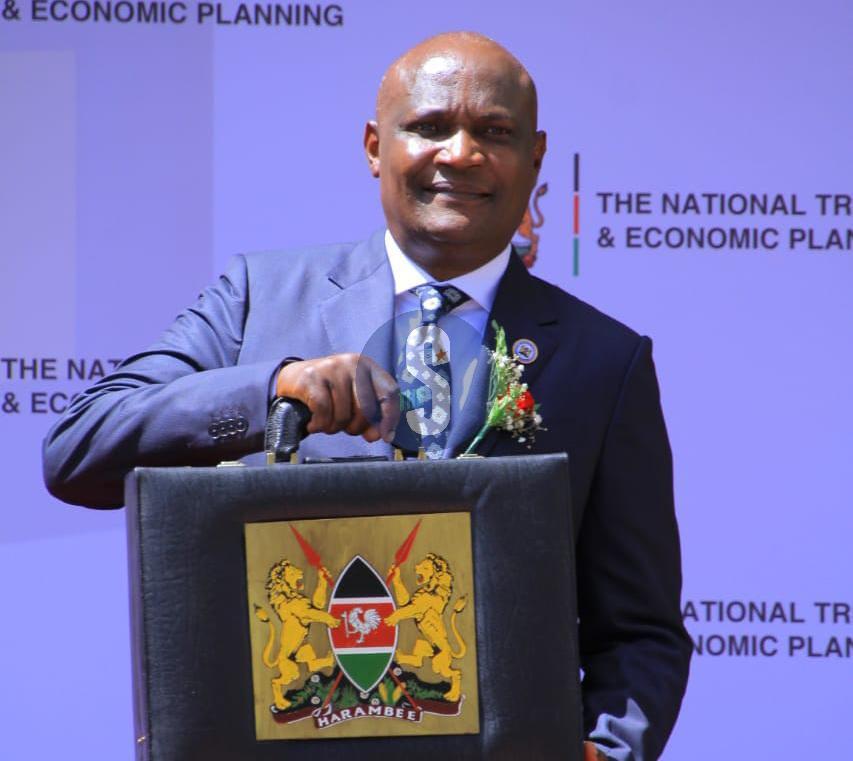

Treasury Cabinet Secretary John Mbadi has today broken a new ground as the first Cabinet Secretary from the opposition to present the national budget in Parliament.
Mbadi has been an ODM nominated MP untill his nomination to the position.
President William Ruto handed him the role through the broad-based government deal with former prime minister Raila Odinga, aimed at fostering national unity and inclusivity.
He was subsequently vetted and was sworn in on August 24.
Beyond the symbolism of his appointment, Mbadi has ushered in a new era of public finance management with the content of the 2025/26 budget.
The budget is anchored on zero-based budgeting as compared to the traditional incremental approach.
Unlike previous years where budgets were based on incremental adjustments, this year, every Ministry, Department, and Agency (MDA) had to justify its requests from scratch.
Speaking during a past event, Mbadi stated that his appointment was not about political tokenism but about delivering deep, structural reforms in the public finance space.
“I cannot deny there is still wastage in the government and one of the most critical steps for us now is having a procurement management system. That is where we lose a lot of resources alongside budgeting,” the minister said.
In a TV interview Thursday morning, Mbadi said the 2025/26 national budget is markedly different from previous years, describing it as reform-oriented and designed to enhance accountability, transparency, and fiscal discipline.
Mbadi said allocations for this year are based on the previous year’s budget with minor adjustments.
“This year, every Ministry, Department, and Agency (MDA) had to justify their budget from scratch,” Mbadi said.
“It is no longer about taking last year’s figures and adding a markup.”
The move, he stated, reflects the government's commitment to address longstanding concerns by Kenyans about pilferage, wastage, and inefficiency in public spending, despite increased revenue collection.
“My attention has been on policy reforms across procurement, asset management, pensions, human resource practices, budgeting, and revenue collection,” the CS said.
“All these combined will help ensure our resources are used effectively, and there is value for money.”
Mbadi said these reforms are designed to outlast his tenure, laying a foundation for future leaders to build upon.
“This is something that will stand the test of time, it is not something that will leave office with me. Once I leave. I will have set a foundation upon which my successor and other people who will come after me will build on to have a prosperous Kenya,” he said.
He acknowledged that last year’s public protests over the Finance Bill reflected a more engaged and alert citizenry.
In response, he said, the Treasury has taken a more inclusive approach this year.
“We had to change how we do things. Kenyans demanded openness and transparency in the budget-making process. This year, we have held public barazas and stakeholder meetings to explain the budget and the Finance Bill.”
Mbadi reiterated his desire to be remembered as the reformer who tackled wastage and corruption in public procurement and played a role in stabilising the economy and managing public debt responsibly.
“The Treasury belongs to the people of Kenya. The money we manage is theirs. Our role is to steward these resources with integrity and in the public interest,” he said.
As mandated across the East African Community (EAC), Mbadi will unveil the budget highlights and revenue-raising measures for the 2025/26 fiscal year.
The government plans to spend over Sh4.2 trillion, funded through a mix of debt, grants, service charges, and ordinary revenue.
Revenue is projected at Sh3.39 trillion, with ordinary revenue expected to hit Sh2.84 trillion, supported by ongoing tax reforms.
The government plans to spend Sh3.1 trillion on recurrent expenditure, Sh725.1 billion on development, and Sh436.7 billion in county transfers.

















